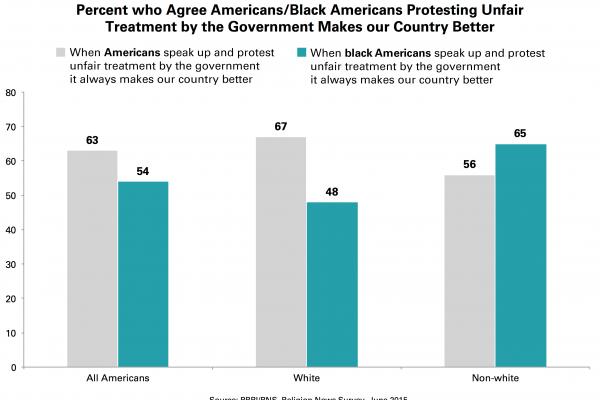Sometimes they release surveys about white people that just make you groan.
When “Americans” speak up and protest unfair treatment by the government, two-thirds (67 percent) of white Americans agree that it always makes our country better. But when “black Americans” speak up and protest unfair treatment by the government, white Americans’ approval drops to less than half (48 percent), all according to a survey released by the Public Religion Research Institue on June 23.
Seriously, white folks? Come on.
On the other hand, non-white Americans are far more likely to believe in the power of black Americans protesting. According to the PRRI report:
Non-white Americans are actually more likely to agree that the country is better off when black Americans protest unfair treatment than when Americans in general protest unfair treatment. A majority (56%) of non-white Americans agree that Americans protesting unfair treatment by the government makes the U.S. better, but nearly two thirds (65%) say that black Americans protesting unfair treatment makes the country better.
While this particular survey can’t tell us anything about root causes of these opinions, it’s hard not to venture a few guesses. For white Americans, black protest simply does not make the(ir) country better. They see it as threat to the status quo. Historically, black protest seeks to take power concentrated in the hands of a predominantly white elite and distribute it across all racial and ethnic boundaries. All of which might explain why non-white Americans support black protest at higher rates: it has literally made their lives better. The black-led protests of the civil rights movement sparked the nation out of a racist slumber, demanding it create specific safeguards for the political rights of non-white Americans.
We hear white people glorify the legacy of Martin Luther King Jr. every day. But when faced with the contemporary manifestation of that legacy, they squirm in their seats. ... I wonder how white folks felt when “black Americans spoke up and protested” in 1965?
Got something to say about what you're reading? We value your feedback!
